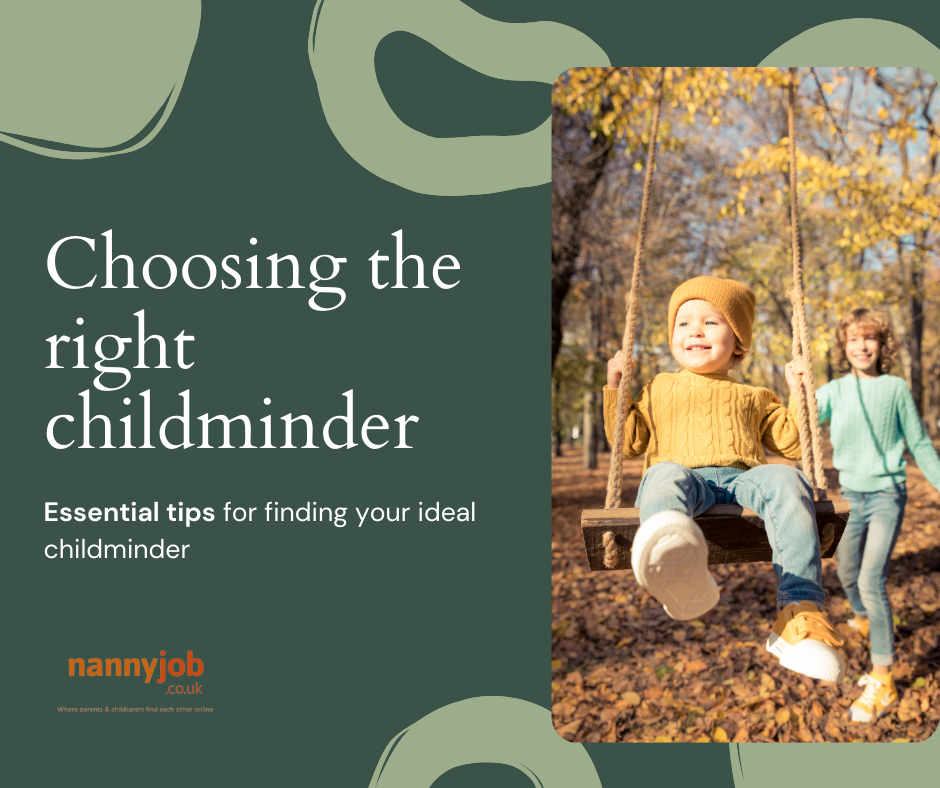Introduction
Choosing childcare is one of the most important decisions a parent can make. Among the various options, childminders offer a unique, home-based alternative to nurseries or nannies. But how do you know if a childminder is the right choice for your family? And what should you look for when choosing one? This guide will help you understand the role of a childminder, their benefits, and how to find the right one for your child.
What Is a Childminder?
A childminder is a trained and registered professional who provides care for children in their own home. They often care for a small group of children, creating a family-like environment where kids can thrive. Childminders are required to meet regulatory standards (such as Ofsted registration in the UK) to ensure they provide safe and high-quality care.
Benefits of Choosing a Childminder
- Home-Like Environment
- A childminder’s setting offers a cosy, home-like atmosphere that can be comforting for young children.
- Children have the opportunity to form close bonds with a smaller group of peers and their caregiver.
- Flexible and Personalised Care
- Childminders can often accommodate flexible schedules, which is ideal for parents with non-standard work hours.
- They tailor activities and routines to suit each child’s needs and preferences.
- One-on-One Attention
- With fewer children in their care, childminders can provide more individualised attention than larger childcare settings.
- Social Interaction
- Children interact with peers of different ages, fostering social and emotional development in a more natural setting.
- Community-Based
- Many childminders are located within local communities, reducing travel time for parents and creating opportunities for children to participate in local activities.
Is a Childminder the Right Choice for Your Family?
Consider These Questions:
- What Kind of Environment Does Your Child Thrive In?
- If your child feels more comfortable in smaller, homier settings, a childminder might be the best option.
- What Are Your Scheduling Needs?
- If you need flexible hours or care outside of standard nursery times, a childminder can often accommodate your schedule.
- What Is Your Budget?
- Childminders tend to be more affordable than nannies and may offer better flexibility than nurseries.
- What Are Your Childcare Priorities?
- If you value close relationships, personalised care, and a smaller setting, a childminder is a great choice.
How to Choose the Right Childminder
- Do Your Research
- Look for registered childminders in your area using online directories or local council lists.
- Check reviews or ask for recommendations from other parents.
- Visit Their Setting
- Arrange a visit to see the environment where your child will be cared for. Look for cleanliness, safety measures, and engaging activities.
- Ask Questions
- Qualifications and Training: What childcare qualifications do they have? Are they first-aid trained?
- Daily Routine: What does a typical day look like?
- Policies: Ask about policies on illness, holidays, and discipline.
- Check Their Registration and Inspections
- Ensure the childminder is registered with the appropriate regulatory body (e.g., Ofsted in the UK) and has up-to-date inspection reports.
- Trust Your Instincts
- Pay attention to how the childminder interacts with your child during the visit. Do they seem warm and engaging?
What to Expect From a Good Childminder
- Open Communication: They should provide regular updates about your child’s day, including meals, naps, and activities.
- Engaging Activities: A good childminder offers a variety of activities to promote learning and development.
- Safe Environment: Their home should be safe, clean, and child-friendly, with appropriate equipment and toys.
- Professionalism: They should handle all arrangements, including contracts and payment schedules, in a professional manner.
Making the Decision
Ultimately, the choice of childcare comes down to what works best for your family. If you value a home-like environment, flexible care, and close attention to your child’s individual needs, a childminder could be the perfect fit. However, if your child thrives in larger group settings with structured activities, a nursery might be more suitable.
Remember, there’s no one-size-fits-all answer. Take the time to explore your options, ask questions, and involve your child in the process where possible. A great childminder can become an invaluable part of your support system, providing not just childcare but also reassurance and peace of mind.
Conclusion
Choosing a childminder is an important decision that requires research, visits, and careful consideration. By understanding the benefits of a childminder and knowing what to look for, you can find a caregiver who fits your family’s needs and helps your child thrive. Whether it’s their first steps, first words, or first friendships, a good childminder can make those moments even more special.



